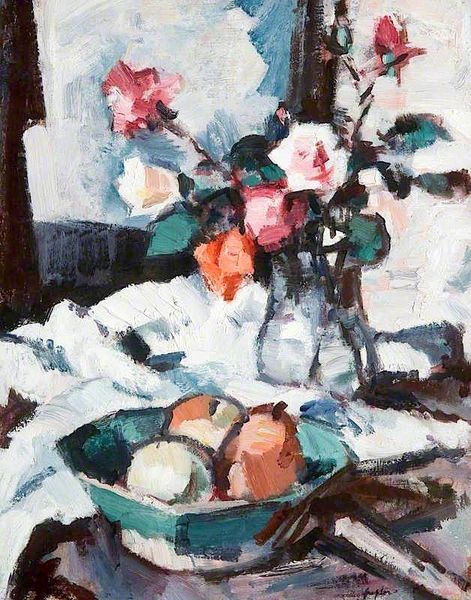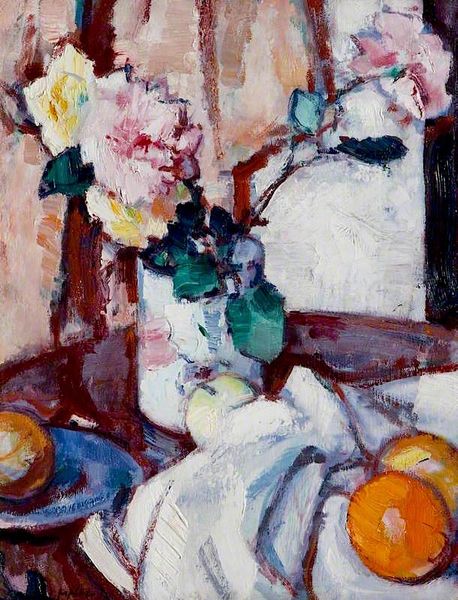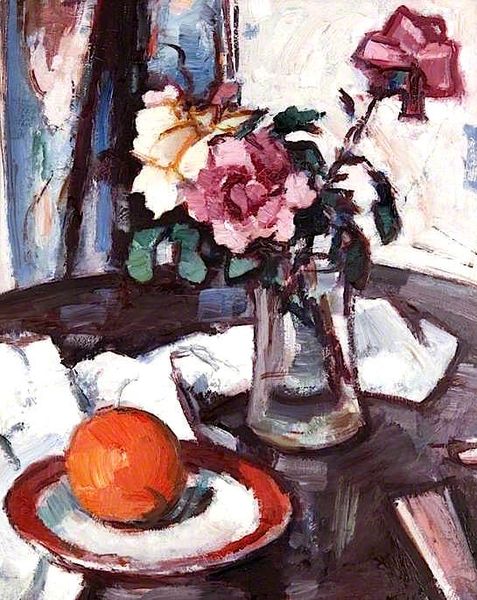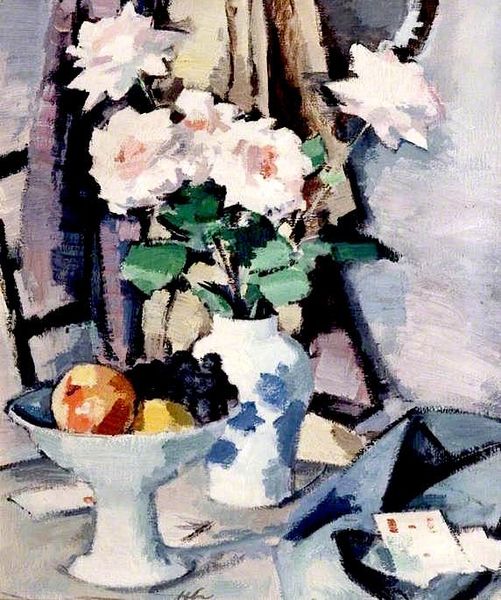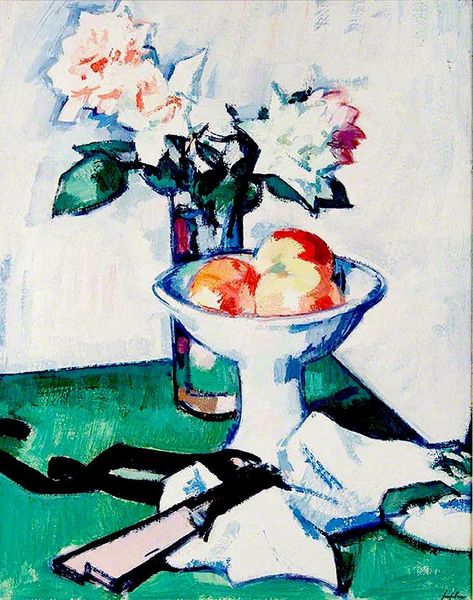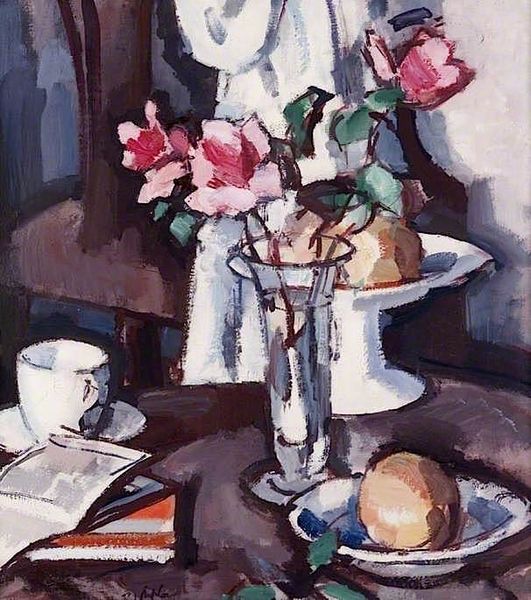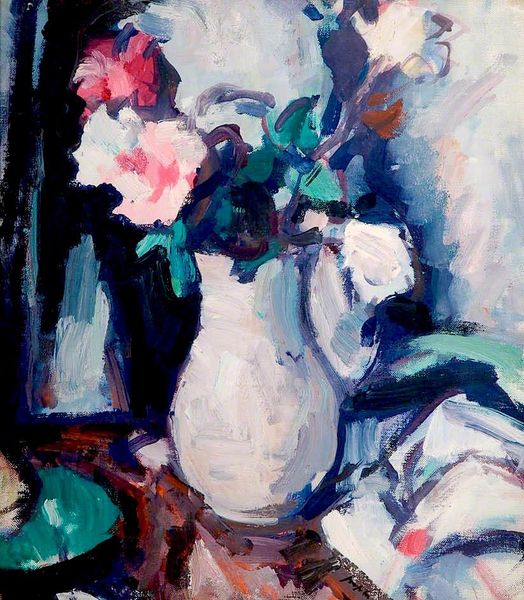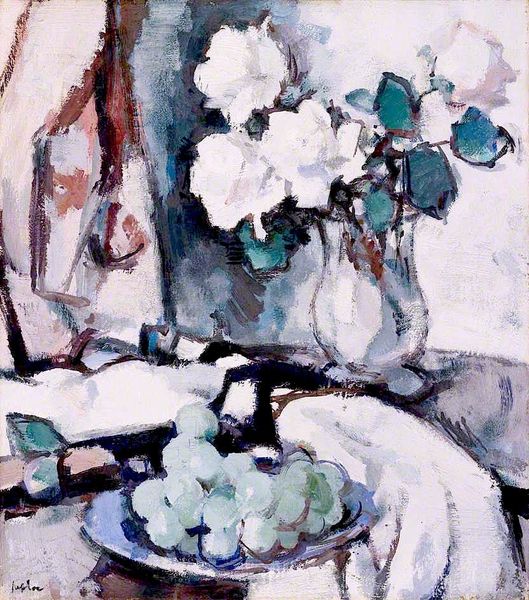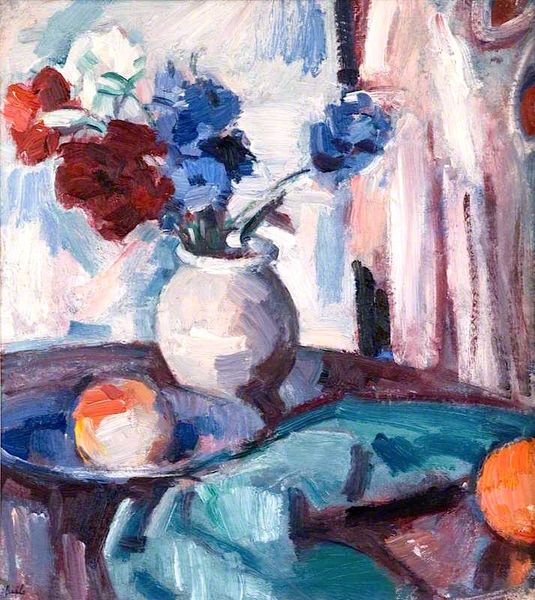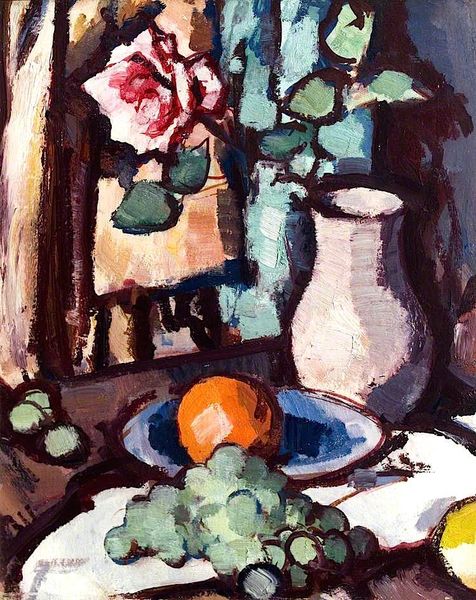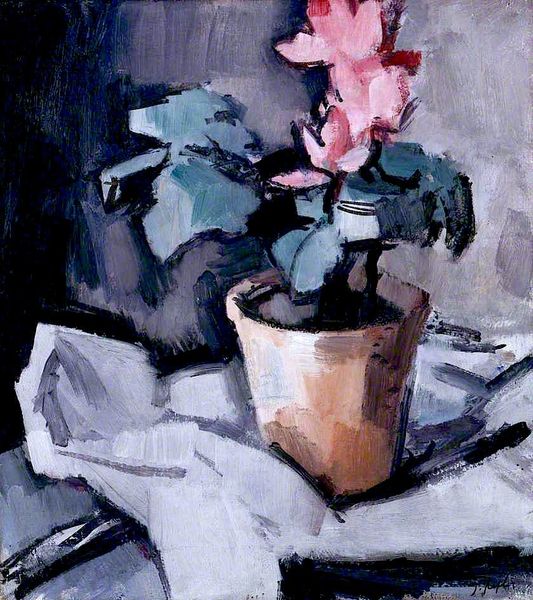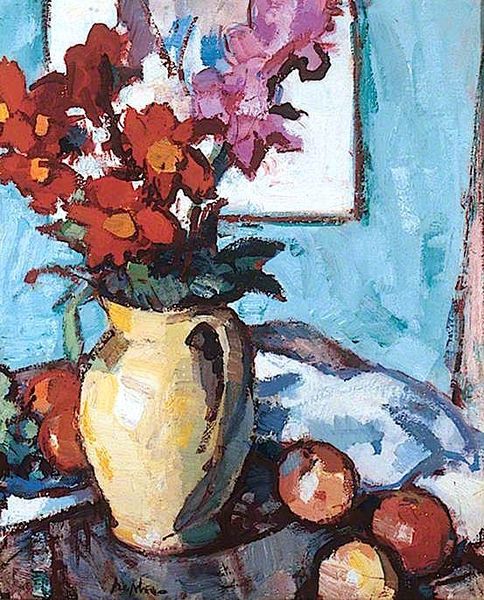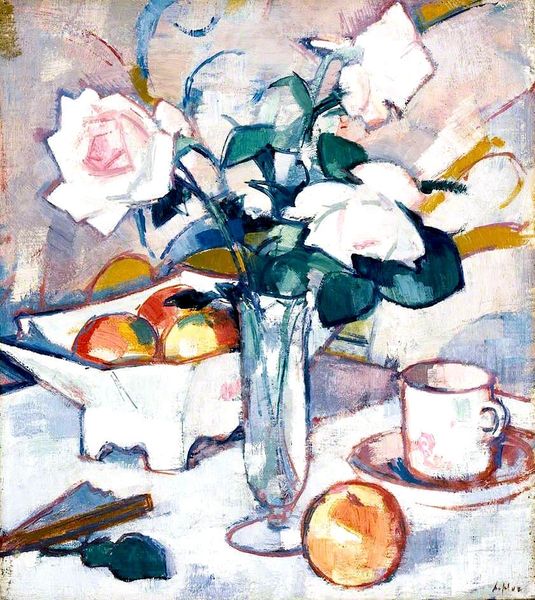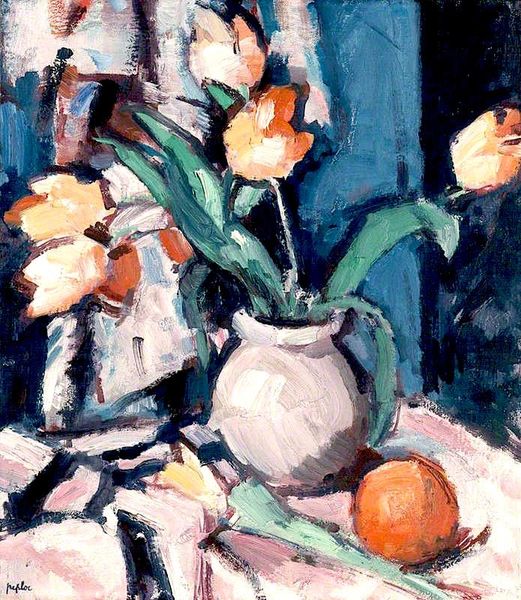
painting, oil-paint, photography
#
still-life
#
impressionist
#
abstract painting
#
painting
#
impressionism
#
oil-paint
#
flower
#
photography
#
neo expressionist
#
acrylic on canvas
#
plant
#
expressionism
#
expressionist
Copyright: Public domain
Editor: Looking at “Roses” by Samuel Peploe, an oil painting, the overall mood feels both intimate and somewhat unsettling. It’s the off-kilter composition, perhaps? What strikes you most about this piece? Curator: I think you've hit on something important there. The intimate and unsettling feelings aren't accidental. Consider the early 20th century's fascination with the subconscious, and the societal upheaval that followed the First World War. Peploe, though working within a still-life tradition, uses the genre to explore these anxieties. Notice how the vibrant colours, particularly the roses, contrast with the almost morbid tones of the shadows and background. Does that dissonance suggest something to you? Editor: It does make me think about the contrast between surface appearances and underlying realities, like the fleeting beauty of the flowers against the decay implied by the shadowy colors. Almost as if, what’s perceived vs reality. Curator: Exactly! And where was Peploe exhibiting these works? Not in isolation, but in galleries and institutions steeped in Victorian ideals of beauty and domesticity. This bold palette, the almost brutal application of paint, can be seen as a direct challenge to those established norms. Are we really meant to be soothed by flowers in a vase? Or is Peploe offering a glimpse beneath the surface? Editor: So it's not just about the flowers, but about the cultural context they exist within? That's fascinating. Curator: Precisely. And how the public at the time might have received that message. To really understand Peploe, we have to examine how his art functioned within, and against, the visual and social landscapes of his time. Editor: I’ve always appreciated this painting but looking at it now and knowing its social commentary, helps give it much more purpose. Curator: Precisely, understanding the “Roses” requires engaging its historical framework and its impact on its contemporaries and perhaps even for us.
Comments
No comments
Be the first to comment and join the conversation on the ultimate creative platform.
